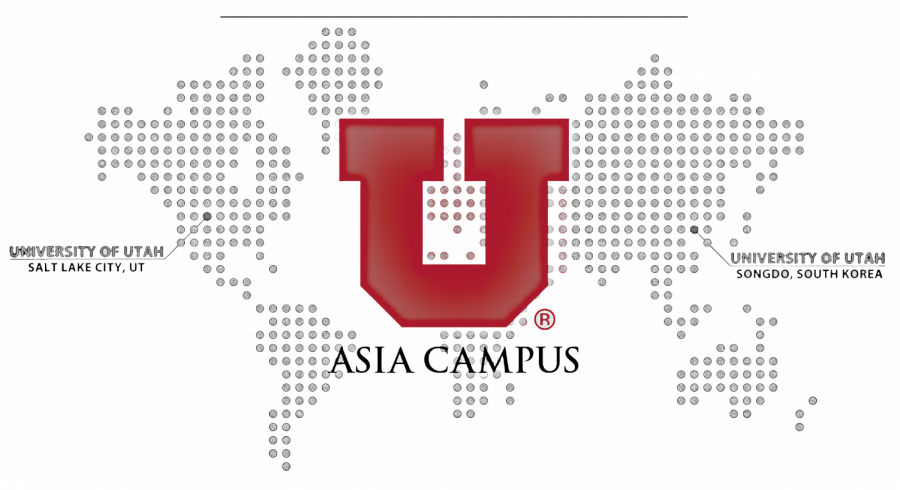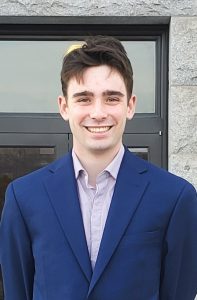New Leadership, Subsiding Pandemic Open International Opportunities at the U
(Graphic by Jose Alex Garcia | The Daily Utah Chronicle)
September 4, 2021
On July 1, Brian Gibson assumed his role as the University of Utah’s new Chief Global Officer for the Office of Global Engagement and leader of the Utah Asia Campus.
“I’d always been aware of the University of Utah’s amazing global footprint and the interesting things that [the U] does around the world … I come from George Mason University, and I had a particular connection to the University of Utah because we both have Korean campuses that join each other,” Gibson said.
College of Social and Behavioral Sciences Dean Cynthia Berg co-chaired the search for a new OGE chief. The search committee looked for candidates who had innovations with online education and getting students from underrepresented communities to international programs.
“[Gibson] has a lot of hands-on experience and understanding international issues, and he also had his very strong and articulated commitment to diversity,” Berg said. “One of the issues that comes up in international engagement is that oftentimes, students from underrepresented backgrounds do not engage or are unable to engage in their national efforts and he had a really strong and articulated commitment to that.”
Gibson said he was attracted to the U because of its unique history, its pioneering spirit and senior leadership’s commitment to going out into the world.
“In particular, establishing new presences around the world, bringing more international students to campus and getting more Utah based students out into the world… And lastly, supporting the University’s already very ambitious and active research agenda around the world,” Gibson said.
The OGE was developed in 2013 by current OGE Associate Chief Global Officer Sabine Klahr and former CGO Mike Hardman. According to Klahr, the office oversees over 500 programs around the world which will be open to students this fall with two faculty-led learning abroad programs going to both Mexico and Cuba.
“Now, with permanent leadership, we can really advance the office, so one thing we really need to do is develop an internationalization strategy for the University,” Klahr said. “That includes all aspects of the University and all that we do [including] teaching and learning, research and service or outreach, so that’s something we would like to focus on.”
According to Klahr, as a large research university, the U should be sending more students abroad and provide more support for faculty involved with learning abroad programs or international research.
“We’re continuing to monitor what’s happening in the world with a pandemic, so it’s a continuous monitoring process to determine whether students, in the end, will be able to go,” Klahr said. “So there’s still a lot of uncertainty, but we’re starting to open up learning abroad again.”
Klahr developed a new international program last year for first-year undergraduate students called Global LEAP Korea, where students complete their fall semester at the U and then travel to the UAC in Incheon, South Korea, for the spring semester.
“Our Asia campus provides the ideal environment for first-year students, it’s very kind of small, has a high staff to student ratio program and so there’s a lot of support for students there.”
Junior Yeojin Kim is one student taking advantage of the international programs offered at the UAC, where she is studying psychology. According to Kim, the campus provides new learning opportunities for both international and Korean students.
“American universities can be really overwhelming if you’re an international student and think it’s a good preparatory year to attend one or two years here,” Kim said. “If you have never studied abroad or don’t speak English well, you can practice it here, get used to it and then go to the big campus, and for me so far it’s been really great.”
While the OGE coordinates the implementation of the U’s strategic plans across the world, both Klahr and Gibson spoke about the need for increasing global competency while using research to help solve global problems.
“I mean, our world is so interconnected and I think the pandemic, you know, really showed that worldwide collaboration is necessary to deal with these worldwide problems,” Klahr said.
According to Gibson, in an extremely interdependent world, students cannot accomplish certain things successfully without being equipped to interact with others as global citizens.
“American students are collaborating, cooperating but also competing,” Gibson said. “To the extent that we are comfortable, embracing differences, embracing diversity makes us much stronger in the global competition in which we’re engaged.”









